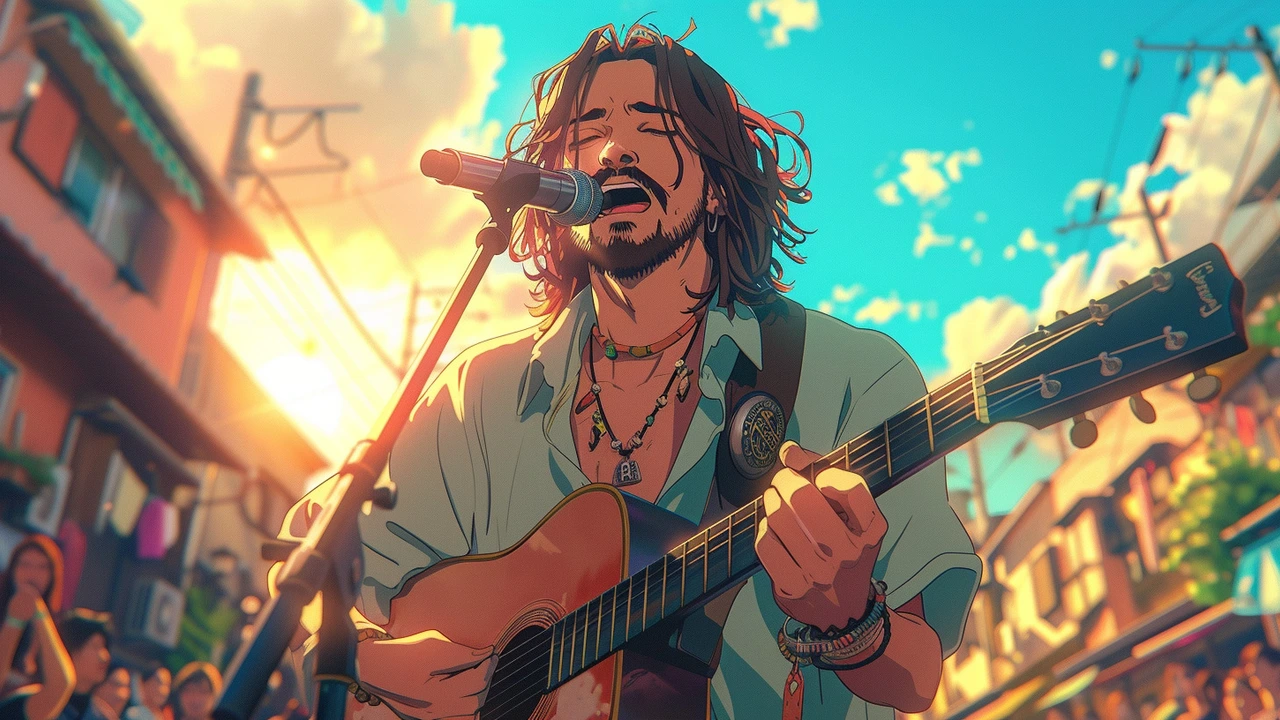The Roots of Reggae: A Genesis in Jamaica
So, let's start at the very beginning, which I've heard is a very good place to start. Have you ever wondered how Reggae was born? I, Zephyr, was certainly intrigued when I first embarked on my musical journey. Reggae owes its genesis to the sunny and vibrant country of Jamaica, during a socio-political era of unrest and change in the 1960s. This music, full of soul and rhythm, is an evolution of earlier Jamaican musical genres such as Ska and Rocksteady, which were popular in the 50s and the 60s. Its roots, however, are also embedded in traditional African music and old-time American Jazz and Rhythm-and-Blues.
Reggae was a form of musical protest against social injustices and inequalities faced by the Jamaican people. It was more than just music. It was, and still is, a social movement. An everyday man's song, a way of life. Its rhythmic beats resonated, and continue to resonate, with the heartfelt struggles and hopes of the masses. Funny thing is, it keeps the island life alive, even amidst struggle. And that, my friends, is the beautiful paradox of Reggae.
Rise of Bob Marley: The Icon of Reggae
Now, I can't talk about Reggae without talking about the man who put its bouncy rhythm on the world stage. Yes, you've guessed it. It's none other than Robert Nesta Marley, better known as Bob Marley. Bob Marley and The Wailers - the band he was a part of, were largely responsible for popularising Reggae globally. Their music, filled with spiritual, political, and social themes, became a beacon of hope and rebellion for many around the world.
Marley himself, with his philosophical lyrics and charismatic performances, became a symbol of the genre. He not only popularised Reggae music, but also the Rastafari movement, a spiritual ideology with African roots that influenced much of his work. Can you believe his iconic song "One Love" was named Song of the Millennium by the BBC? That's the power of Marley and his Reggae!
Reggae's Socio-political Impact
Reggae music marked a turning point in the socio-political scenario of Jamaica and later, had a vast global impact. Its characteristic groovy beats were influential in delivering powerful messages regarding prevalent social issues. Can you imagine, a simple, captivating rhythm could voice resistance against oppression, racial inequality, and poverty? That's the might and main of Reggae.
In many ways, Reggae has even influenced the course of political movements. It played a significant role during the Apartheid struggle in South Africa, and its echoes were felt during the Civil Rights movement in the United States. Even when I was growing up, I often heard these songs filled with raw emotion and powerful wisdom being played around me. They have somehow contributed to the person I am today.
The Sound of Reggae
So, what makes Reggae sound...well, like Reggae? If you've ever bobbed your head to the sweet symphony of a Reggae beat, you'd have noticed its trademark style of rhythm. Technically, this groove is created by placing accents on the 2nd and 4th beats of a 4/4 bar. Want to impress your friends at your next jam where Reggae is on the playlist? Just remember this fancy term "One-drop rhythm". That's your ticket to sounding like a seasoned Reggae Bob!
No, really, try tapping your foot to a Reggae track. You see what I mean? It’s quite different from your general 1-2-3-4 music; it’s something more mesmerising. And let's not forget the iconic role of the humble bass guitar in Reggae. Instead of playing a background role, the bass takes centre stage with complex, dominant lines. That's what gives Reggae its rich, deep heartbeat, something that drew me into the genre in the first place.
Reggae and Rastafarianism
Religion and music have often been intertwined throughout history, and Reggae is no exception. Rastafarianism, a spiritual and socio-political movement that arose in Jamaica in the 1930s, has played a huge part in shaping the genre. You might even call it the soul of Reggae. Do the concepts of one love, one heart, unity and peace ring a bell? Yes, they're central to both Reggae and Rastafarianism.
The movement’s influence on Reggae is evident in the recurrent use of Rasta colours – red, green, and gold, in album art, as well as the incorporation of the African nyabinghi drumming style. And let's not forget the dreadlocks! As iconic as Bob Marley's melodies are his long, flowing locks, a key symbol of Rastafarianism.
Modern Day Reggae and Global Influence
Reggae has evolved greatly from its original form, branching out into sub-genres like Dancehall, Dub, and Reggaeton, each with their unique flavor. Today, it continues to influence music across the globe, and has left its touch on everything from Punk to Hip Hop, to Pop. Take Rihanna's chartbuster "Man Down", or MAGIC!'s hit "Rude", or UB40's famous "Red Red Wine" -- all of them bear the unmistakable footprints of Reggae.
If music be the food of love, then Reggae must be a full course Jamaican feast! It never fails to amaze me how this genre, born on a small island in the Caribbean, has spanned continents and generations, leaving its indelible mark. It's vibrant, it's soulful, it's Reggae...it's a celebration of life, love and unity, and that's something to bob your head to!
